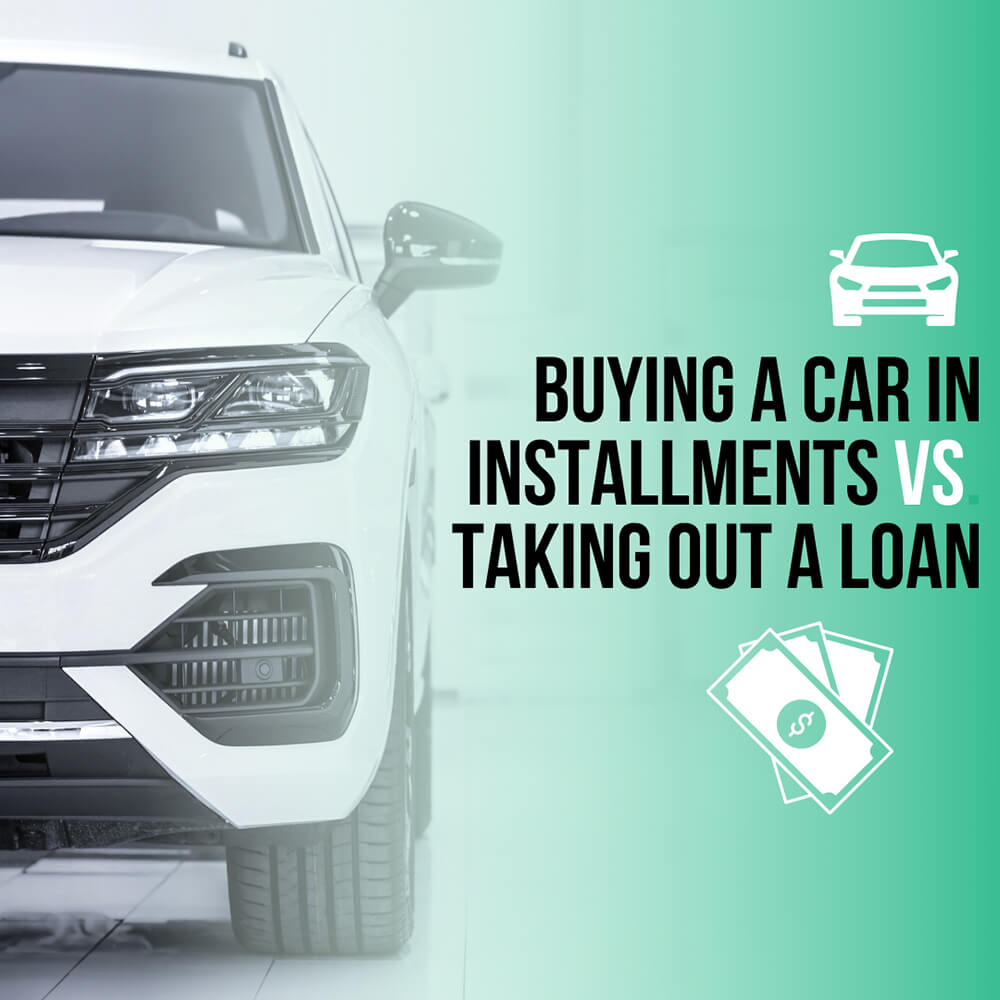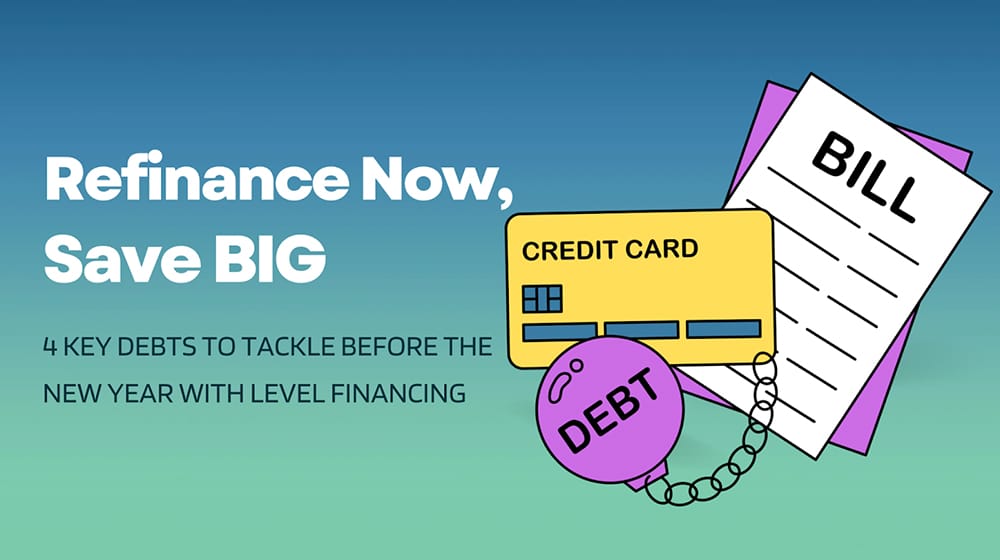Buying a car is exciting.
That new car smell, the shiny dashboard, the thrill of a smooth ride—there’s nothing quite like it. But before you can zoom off into the sunset, you need to navigate the winding roads of car financing.
In the car-buying world, two options frequently cross the path of potential buyers: buying a car in installments and taking out a loan.
Initially, this may appear as intricate financial jargon, but rest assured, it’s not. We are here to assist you in understanding these choices, their advantages and disadvantages, and how to choose wisely, given your particular financial circumstances.
Let’s dive in!
Understanding Auto Buying in Installments
Ever wondered what buying a car in installments from car dealerships means? It’s simple! You can spread out the cost of buying your car over time rather than paying the price of the car all at once in cash, kind of like buying a car on a layaway plan. This is true whether you want to buy a new or used car.
You begin this journey with a down payment. This is a percentage of the car’s total cost that you pay upfront. The remaining amount is then split into monthly payments over a certain period—typically ranging from 12 to 84 months.
Principal and interest are the two components of each payment. The principal is a slice of the car’s original price, while the interest is the cost of borrowing money from the dealer.
Do your research before and compare offerings from various car dealerships because interest rates can differ significantly.
Key Takeaway: When you choose to buy a car in installments, you don’t need to take out a loan.

Advantages and Disadvantages of Buying in Installments
Why might you want to buy a car in installments? Well, there are a few good reasons.
- Smaller, manageable payments: Instead of forking out a hefty amount of cash upfront, you pay smaller amounts over time through dealer financing.
- Possibility of zero or low interest: Dealerships sometimes offer promotional interest rates. If you pay off the loan within a certain time frame, you could score zero or low interest.
However, like most aspects of life, there’s a catch involved. Buying in installments can also have some downsides:
- Longer repayment periods: Spreading out payments means you might be paying off your car for several years. This could tie up your money, which you could have used elsewhere.
- Risk of high-interest rates: If you miss a payment or if you can’t pay off the loan during a promotional period, the interest rate can jump. You could end up paying significantly more for the car than its original price.
Key Takeaway: Buying in installments is an attractive option for those who want to manage their payments. However, be careful of the high interest rates that could come with this route.
Exploring Car Loans
So, what about an auto loan? Rather than resorting to dealership financing, in this case, you would be sourcing funds from a financial establishment, such as a bank or a credit union.
In this arrangement, these institutions pay the full price of the car to the dealer, and you, the borrower, repay the bank or credit union over time, with the added cost of interest.
Here are the key aspects of bank financing you need to be aware of.
- The Interest Rates: Be vigilant about the interest rates when applying for a car loan. Just as with dealership financing, these rates can significantly impact the overall cost of the vehicle. As per a Q1 2023 Experian report, the mean interest rate for a new car loan was roughly 6.58%, although this figure can fluctuate significantly based on aspects like your credit rating, loan period, and the financial institution involved.
- Loan Term: The length of your loan is another critical aspect to consider. Extending your loan term might decrease your monthly payouts, yet it escalates the aggregate interest paid throughout the loan duration. As per the Experian State of the Automotive Finance Market 2022 report, the average new car loan term was 69 months.
- Your Credit Score: A higher credit score can significantly improve your chances of securing a lower interest rate on your car loan. As per a 2023 report by FICO, borrowers with credit scores of 720 or higher were able to secure an average interest rate of 3.65% on new car loans.
- Bank vs Credit Union: Credit unions often offer lower interest rates than banks. In 2023, the National Credit Union Administration reported an average interest rate of 5.4% on new car loans from credit unions, it is 2% lower than the average rate offered by banks.
Key Takeaway: An auto loan can be a great option for those who want to spread out their payments and avoid high upfront costs. However, you’ll need to consider factors like interest rate, loan terms, and your credit score before making a decision. Also, keep in mind that credit unions may offer better interest rates than banks.

Pros and Cons of Taking Out an Auto Loan
Now that we understand car loans, let’s check out their advantages.
- Potentially lower interest rates: Banks and credit unions often offer competitive interest rates, especially if you have a good credit score4.
- Negotiating power: With pre-approved financing, you can haggle over the car’s price as if you were a cash buyer.
However, car loans are not without their disadvantages.
- Risk of overborrowing: It’s easy to be tempted into borrowing more than you need—especially if the lender approves you for a large loan.
- Possibility of higher monthly payments: More money borrowed equals higher monthly payments. If you’re not careful, you could end up with a payment that strains your budget.
Key Takeaway: Car loans can provide lower interest rates and strengthen your negotiating power when buying a car. However, be careful not to borrow too much—and keep an eye on the monthly payments you’ll need to make.
Read More: Taking Out a Personal Loan for Car Repairs
Comparing Buying in Installments vs. Taking Out a Loan
Choosing between buying in installments and taking out a loan can feel like picking the winner in a race. Here are some factors to consider when comparing these two options.
- Total Cost: On the surface, installment plans and loans may seem similar, but there can be a significant difference in the total cost over time. Usually, car loans might turn out to be more cost-effective over time owing to the possibility of reduced interest rates. However, the price can differ significantly based on elements like your credit score and the particular loan terms.
- Monthly Payments: When it comes to monthly payments, installment plans often come out on top. These plans usually involve smaller monthly payments, making them more manageable for many individuals.
- Impact on Credit Score: Both buying in installments and taking out a loan will initiate a hard credit check, which can cause a temporary dip in your credit score. According to the credit bureau Equifax, this impact is typically minimal and short-lived, often lowering your score by less than five points for a few months. Importantly, making timely payments on either a loan or installment plan can help boost your credit score over time. According to a 2023 FICO report, individuals who made regular, on-time payments for a year saw an average credit score increase of 8 points.
Key Takeaway: When deciding between buying in installments or taking out a loan, consider the total cost over time, monthly payments, and impact on your credit score. Both options can help you get into the car you want and may even improve your credit score over time.

Making the Right Decision for Your Financial Situation
Now we come to the pivotal question: which option is ideal for you? This depends on several factors. Let’s have a look at some of them.
- Monthly Income: Are you able to make the payments? The Bureau of Labor Statistics reported in 2023 that the median monthly income in the United States was approximately $6,228 before taxes.
- Spending plan: How does a car payment fit in with the rest of your monthly bills? When calculating a car payment, keep in mind to take additional automobile-related costs like insurance, maintenance, and fuel into account.
- Credit Score: Your credit score plays a significant role in determining the interest rate you’ll receive on a car loan. Experian’s 2023 report discovered that individuals boasting a credit score of 720 and higher were awarded an average interest rate of 3.65% on new car loans, whereas those with scores under 600 were subjected to rates nearing 11.26%.
- Future financial objectives: You should also take a good look at your financial goals when thinking about a car payment. Setting aside a sizable chunk of your money for auto payments might not be the best course of action if you have big investments like a house or other vehicles in mind. Based on a 2023 study conducted by the National Association of Realtors, high debt was pinpointed by 33% of potential home buyers as the principal deterrent in their home-buying plans.
Key Takeaway: When deciding between taking out a loan or buying in installments, consider your monthly income, spending plan, credit score and future financial objectives. Choose the option that works best for you and your budget to ensure you don’t overextend yourself financially.
Car Loan vs. Installments: Final Thoughts
Wow, we sure have covered a lot of information.
A car purchase is a significant financial decision, so carefully consider your options before signing any contract. Do your research before purchasing a car, whether you decide to pay for it in monthly payments or borrow the money.
Compare prices, shop about, and don’t be shy about haggling. Be sure to get expert advice if you ever feel uncertain or overwhelmed. Your travel and your money are both yours!





